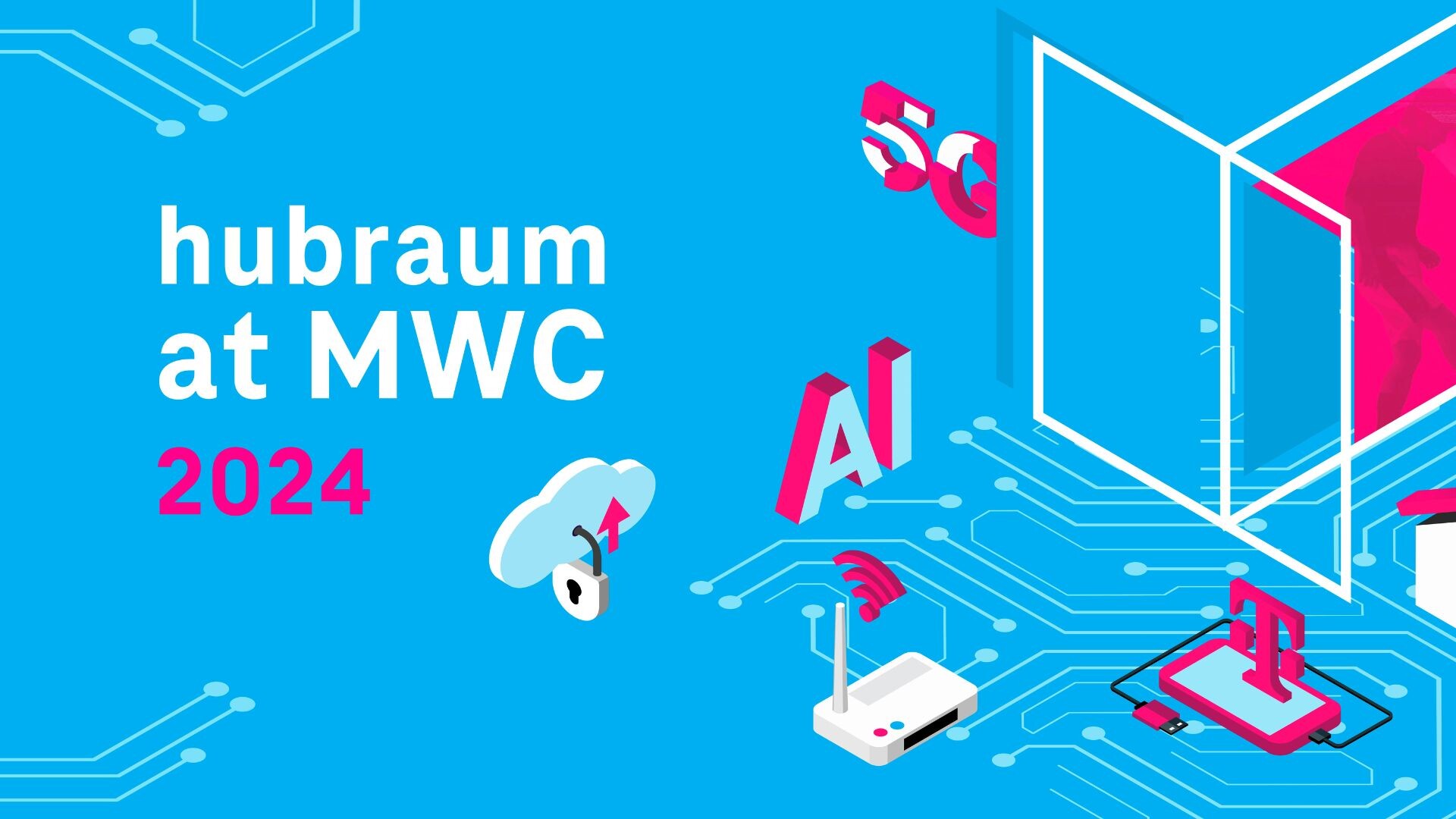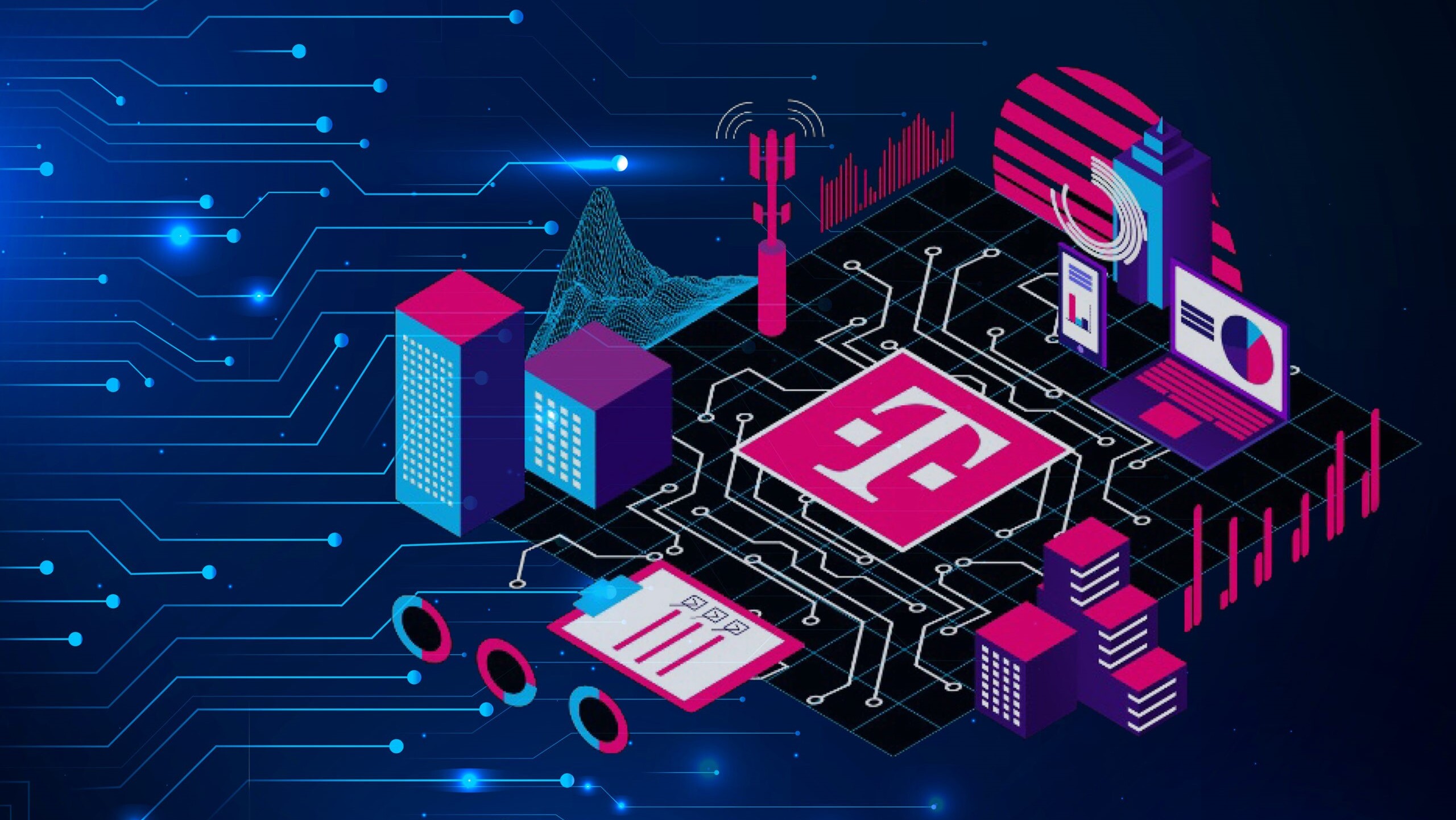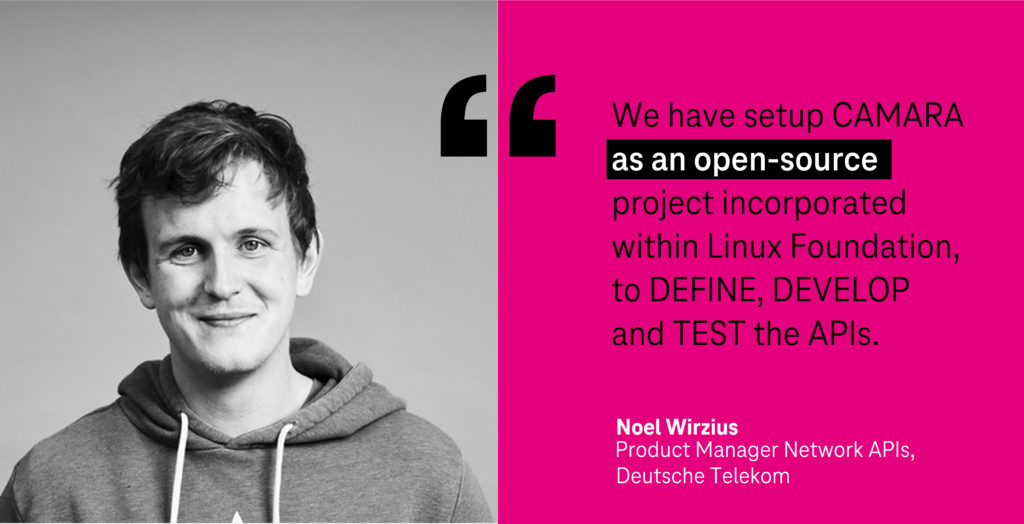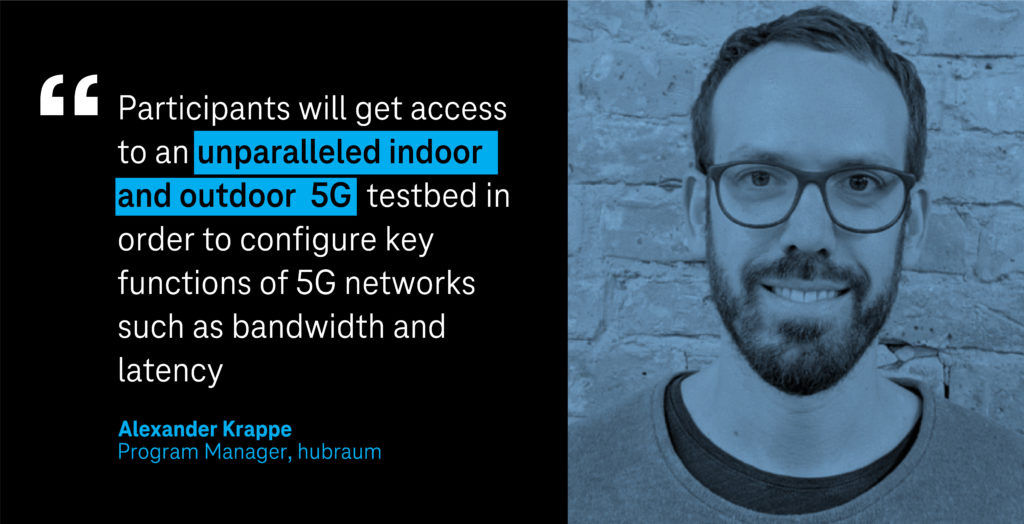
2700 visitors and a hat to help the blind see: hubraum visits MWC 2024
After a whirlwind trip to the 2024 Mobile World Congress in Barcelona, we’re ready to celebrate our wins.

When it comes to application programming interfaces (APIs), telco operators need to work together to build bridges between their various networks, and in doing so, ensuring a seamless experience across different networks and countries.
This is no small order in a highly competitive landscape such as the global telco services market. To tackle this challenge, in early 2021 Deutsche Telekom, together with a number of other operators, decided to join forces with the Linux Foundation and the GSMA association to create CAMARA – Telco Global API Alliance. First introduced to the public at Mobile World Congress 2022, the CAMARA Alliance has set itself an ambitious goal: to enable seamless access to 4G/5G network capabilities!

Creating standardized software products is a challenging task. The CAMARA partners chose an open-source approach to develop their ideas for universal 5G telco services. “CAMARA is set up as an open-source project within Linux Foundation to define, develop and test the APIs,” explains Noel Wirzius, product manager for network APIs within Deutsche Telekom. “CAMARA works in close collaboration with the GSMA Operator Platform Group to align API requirements and publish API definitions and APIs. Harmonization of APIs is achieved through fast and agile created working code with developer-friendly documentation. API definitions and reference implementations are free to use under an Apache 2.0 license.”
This approach is also being reflected in the way CAMARA structures access to membership. They don’t limit membership to telco network operators but also open it up to software companies such as Amdocs or Open Sesame, hyperscalers such as Microsoft or Google, customers such as Accenture or Cap Gemini, and of course vendors such as Ericsson, Nokia or Mavenir.
In Deutsche Telekom’s 2030 strategy, “Telco as a platform” plays a central role. One distinguishing feature of a platform is the ability to access platform services via formalized interfaces without knowledge of the inner workings. As a consequence, Telco as a platform requires the ability to provide interfaces to the platform to any type of user. APIs are the means to allow external consumers access to the platform.
Deutsche Telekom 5G APIs are the first APIs designed according to these CAMARA specifications. Within CAMARA, dedicated working groups take care of the various APIs and develop guidelines for the source code, documentation and CAMARA specific terms. All of these processes are publicly available on the Github platform, thus creating a highly valuable feedback function since any proposal made via the platform will receive instant reactions or new ideas for developing it further. Since many of this feedback will be provided along with use cases, it might even enable users to skip time-consuming customer research.
From Deutsche Telekom’s perspective, the current focus is on 5G, but there is also ongoing work with CPaaS (Communications Platform as a Service) to integrate real-time communication capabilities. As a rule, the team is open to hearing any topic or idea which focuses on network exposure for Deutsche Telekom.
“This is ‘Neuland’ for many, of course,” says Noel Wirzius. “There are many organizations within the Deutsche Telekom Group which have never cooperated before in such a way, and which now are going to open up to allow this emerging Telco platform to grow.”
For example, just imagine a future in which cars are equipped with all the latest electronic features, such as Automated Valet Parking. To use this service (as was demonstrated in a proof of concept by Deutsche Telekom together with BMW and Valeo) a 5G connection and 5G APIs are required. Unless these APIs are standardized and function in any 5G network, this fancy valet parking service will not work as soon as you’re out of reach of Telekom’s 5G network – and wouldn’t that be frustrating?
Another example is the monitoring and management of critical communication processes which depend on the prioritization of small data packets, for instance for drone navigation, security alerts, or even more fun options like online karaoke.
To achieve the required seamless experience for these kind of services, open standards are a prerequisite. This is equally important for the developer side, since from their perspective even a large company such as Deutsche Telekom represents a niche market, whereas working with an open standard allows them to address a global market with their solutions and speed up the time required to take their product or service to market. CAMARA therefore aspires to keep things as simple as possible for developers – enabling them to build a solution just once, but to use it in multiple scenarios.
One important last thing to know about CAMARA is that the alliance is entirely focused on use cases and APIs, whereas business discussions have no place in this structure.

In the future, our APIs will be available via the upcoming T Developers portal. For now, Deutsche Telekom has built a unique indoor and outdoor testbed at hubraum to enable developers, startups, corporates and hyperscalers to test our CAMARA compliant 5G APIs directly on a fully functional 5G standalone core network.
Here, developers can validate the impact of our 5G APIs on their own APIs and apps in our testbed, thus getting a head start on new business opportunities by finding out early on how their products can utilize 5G functionalities.
Specific areas of interest we are looking for include moving objects (such as cars, drones, or automated guided vehicles); production topics such as smart factory or automatic production lines; entertainment projects such as gaming or metaverse; and other topics such as security or agriculture.
“We created the 5G Early Access Program to develop the future of the participating companies and their use cases, empowered by our 5G network in Berlin,” says program manager Alexander Krappe. “Participants get access to an unparalleled indoor and outdoor 5G testbed to configure key functions of 5G networks such as bandwidth and latency.”
To apply, don’t hesitate to simply head over to our application page!